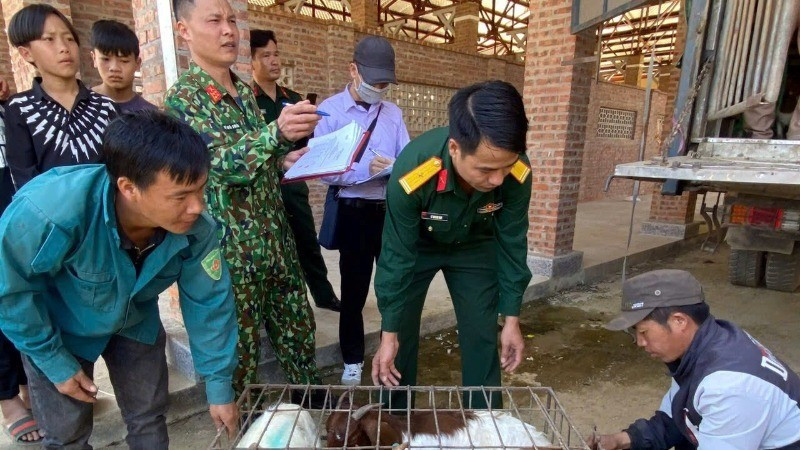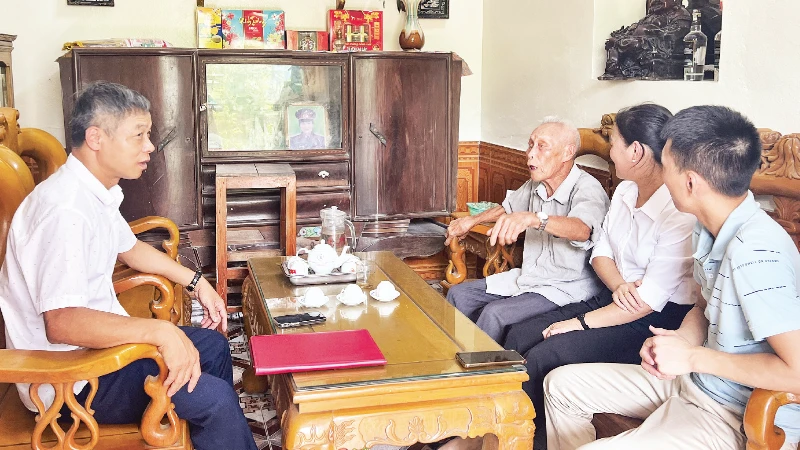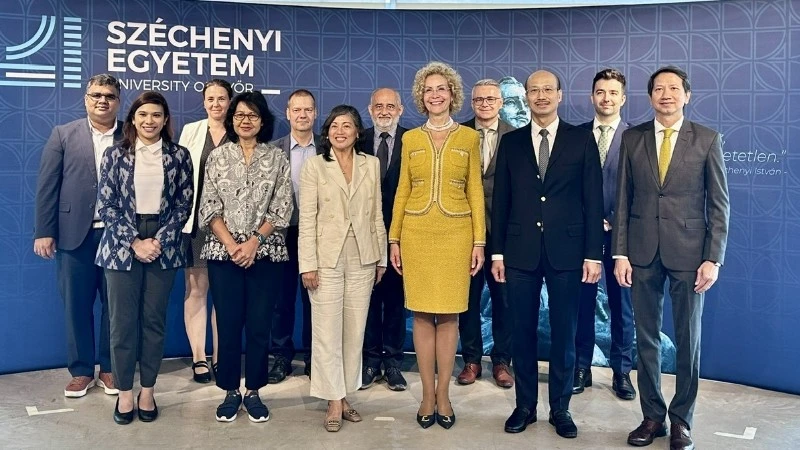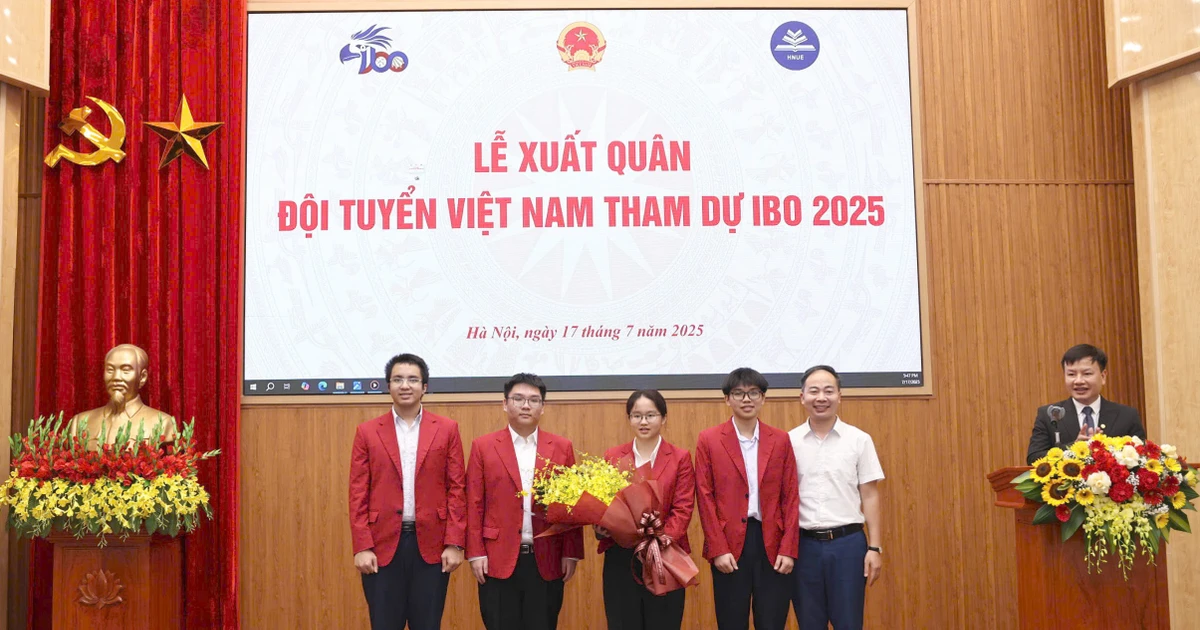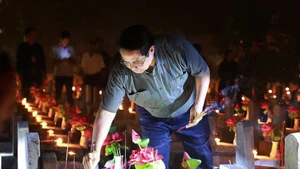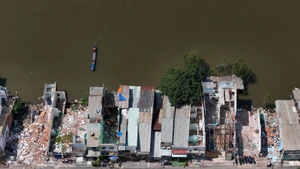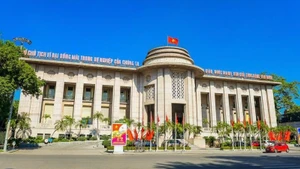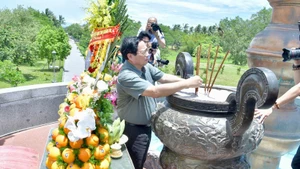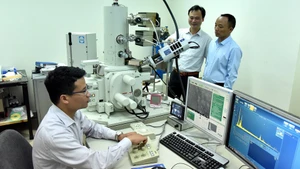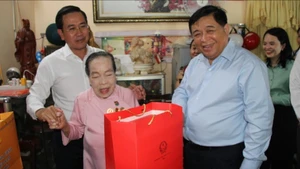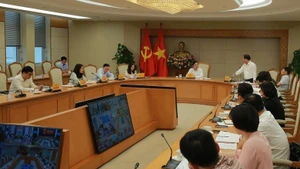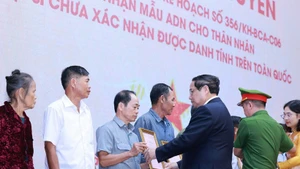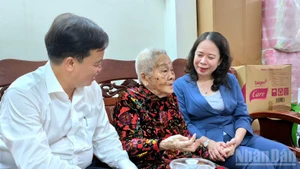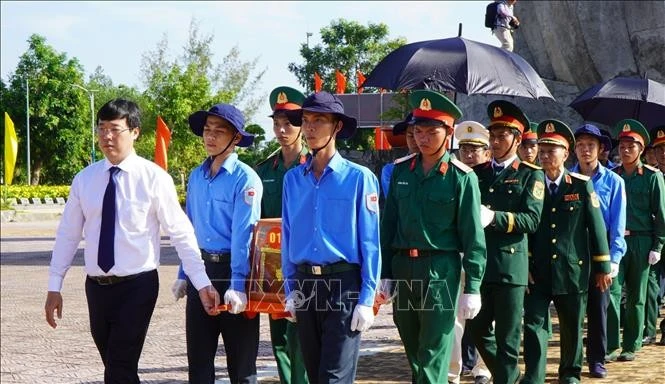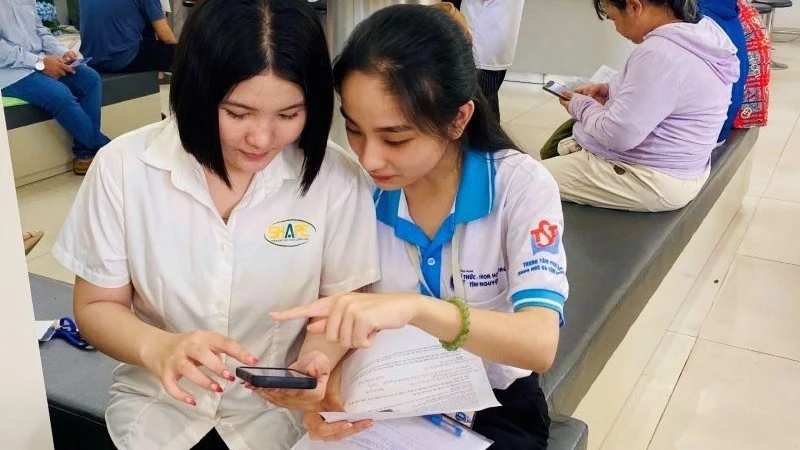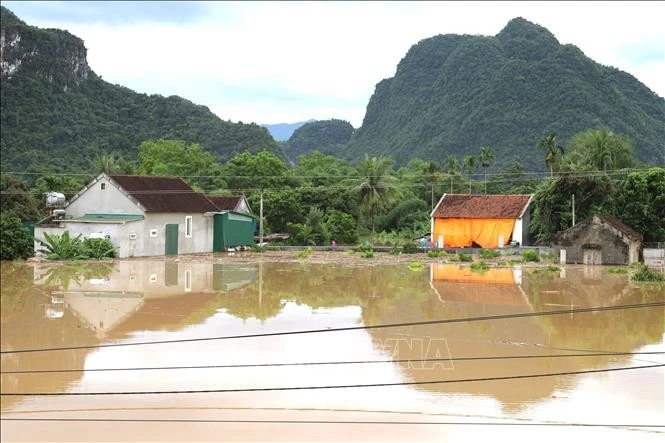Understanding their hardships, in recent years, officers and soldiers of Production and Political Infrastructure Construction Team No. 1, under Economic-Defence Unit 345 of Military Region 2, have dedicated their responsibilities and affection to helping the people develop their economy, culture, and society.
Lieutenant Doan Thanh Hoa, Political Commissar of Production and Political Infrastructure Construction Team No. 1, stated that the unit is responsible for ensuring national defence while fostering economic, cultural, and social development in key project areas. These include Nam Chac and Trinh Tuong communes of Bat Xat District, as well as Cao Son, La Pan Tan, and Ta Thang communes in Muong Khuong District, which together share an 18km-long border with China. This region experiences harsh weather conditions, consists mainly of mountainous terrain with rugged landscapes, and has a sparse population, predominantly ethnic minorities, who face economic difficulties.
Given this reality, the leadership and commanders of the team have been deeply concerned about how to help the people escape poverty and eliminate outdated customs that persist in some communities. The Party Committee and the unit's branch have discussed and reported to higher authorities on organising and implementing projects and programs to help eradicate poverty sustainably.
The unit focuses on projects that align with the traditional farming and livestock practices of the people. However, instead of doing everything for them, the team encourages, supports, and stimulates their active participation. When implementing projects, the team provides initial plant and animal breeds, assists, and guides the people in cultivation and animal husbandry techniques. Team members closely monitor the situation of each household, particularly impoverished and near-poor families, to promote awareness and gradually change their mindset.
Many successful models have been replicated, including breeding buffaloes, cows, goats, black pigs, and indigenous black ducks, as well as cultivating bananas, avocados, pomelos, custard apples, and medicinal plants such as cinnamon, artichokes, and angelica.
The team has launched a movement encouraging officers and soldiers to self-study and train themselves to improve their knowledge of economic management, project development, and sustainable poverty reduction in local communities. Officers assigned to assist households work with them to set timeframes, methods, and strategies for escaping poverty. They also guide the people in applying scientific advancements and information technology in production and animal husbandry to enhance productivity and product quality.
These efforts have created jobs for impoverished households participating in the projects, increased income levels, and stabilised livelihoods. Since 2021, Team No. 1 has provided the people with 375 piglets, 268 goats, 2,000 chickens, 27 cows, 60 buffaloes, 63,000 Shan Tuyet tea plants, and nearly 300,000 cinnamon trees. The team has also assigned officers and staff to monitor and assist each poor household, significantly reducing the poverty rate in the area each year.
Comrade Ma Seo Cui, Chairman of the People's Committee of Nam Chac Commune, Bat Xat District, shared that the local population mainly consists of ethnic minorities living in high mountainous areas who practice traditional slash-and-burn farming, leading to persistent economic difficulties. However, with the support of the officers and soldiers of Production and Political Infrastructure Construction Team No. 1, Economic-Defence Unit 345, the number of poor households in the region has decreased. Many families have gradually stabilised and improved their living conditions.
Officers, staff, and soldiers of the team stay in the villages day and night to work closely with the people. They lead by example, actively guiding and assisting in animal husbandry and farming techniques, enabling the locals to work independently and develop their family economy. Through their dedicated efforts, the officers and soldiers have helped transform the people's way of thinking and living, fostering economic self-sufficiency and strengthening the deep bond between soldiers and civilians in this frontier region of the homeland.
